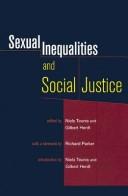| Listing 1 - 3 of 3 |
Sort by
|
Book
Year: 2007 Publisher: Washington, D.C., The World Bank,
Abstract | Keywords | Export | Availability | Bookmark
 Loading...
Loading...Choose an application
- Reference Manager
- EndNote
- RefWorks (Direct export to RefWorks)
Few representative surveys of households of migrants exist, limiting the analysis of the effects of international migration on sending families. This paper reports the results of an experiment designed to compare the performance of three alternative survey methods in collecting data from Japanese-Brazilian families, many of whom send migrants to Japan. The three surveys conducted were 1) Households selected randomly from a door-to-door listing using the Brazilian Census to select census blocks; 2) A snowball survey using Nikkei community groups to select the seeds; and 3) An intercept point survey collected at Nikkei community gatherings, ethnic grocery stores, sports clubs, and other locations where family members of migrants are likely to congregate. The authors analyze how closely well-designed snowball and intercept point surveys can approach the much more expensive census-based method in terms of giving information on the characteristics of migrants, the level of remittances received, and the incidence and determinants of return migration.
Anthropology --- Benefits of Migration --- Communities & Human Settlements --- Culture & Development --- Family Members --- Health, Nutrition and Population --- Housing and Human Habitats --- International Migration --- Migrant --- Migrants --- Policy Research --- Policy Research Working Paper --- Population Policies --- Progress --- Remittances --- Return Migration --- Small Area Estimation Poverty Mapping --- Social Analysis --- Social Development
Book
Year: 2007 Publisher: Washington, D.C., The World Bank,
Abstract | Keywords | Export | Availability | Bookmark
 Loading...
Loading...Choose an application
- Reference Manager
- EndNote
- RefWorks (Direct export to RefWorks)
Few representative surveys of households of migrants exist, limiting the analysis of the effects of international migration on sending families. This paper reports the results of an experiment designed to compare the performance of three alternative survey methods in collecting data from Japanese-Brazilian families, many of whom send migrants to Japan. The three surveys conducted were 1) Households selected randomly from a door-to-door listing using the Brazilian Census to select census blocks; 2) A snowball survey using Nikkei community groups to select the seeds; and 3) An intercept point survey collected at Nikkei community gatherings, ethnic grocery stores, sports clubs, and other locations where family members of migrants are likely to congregate. The authors analyze how closely well-designed snowball and intercept point surveys can approach the much more expensive census-based method in terms of giving information on the characteristics of migrants, the level of remittances received, and the incidence and determinants of return migration.
Anthropology --- Benefits of Migration --- Communities & Human Settlements --- Culture & Development --- Family Members --- Health, Nutrition and Population --- Housing and Human Habitats --- International Migration --- Migrant --- Migrants --- Policy Research --- Policy Research Working Paper --- Population Policies --- Progress --- Remittances --- Return Migration --- Small Area Estimation Poverty Mapping --- Social Analysis --- Social Development

ISBN: 9780520246157 9780520246140 0520246152 1433701367 9781433701368 9780520939141 052093914X 128277199X 9781282771994 0520246144 9786612771996 Year: 2007 Publisher: Berkeley : University of California Press,
Abstract | Keywords | Export | Availability | Bookmark
 Loading...
Loading...Choose an application
- Reference Manager
- EndNote
- RefWorks (Direct export to RefWorks)
This pioneering collection of ten ethnographically rich essays signals the emergence of a new paradigm of social analysis committed to understanding and analyzing social oppression in the context of sexuality and gender. The contributors, an interdisciplinary group of social scientists representing anthropology, sociology, public health, and psychology, illuminate the role of sexuality in producing and reproducing inequality, difference, and structural violence among a range of populations in various geographic, historical, and cultural arenas. In particular, the essays consider racial minorities including Hispanics, Koreans, and African Americans; discuss disabled people; examine issues including substance abuse, sexual coercion, and HIV/AIDS; and delve into other topics including religion and politics. Rather than emphasizing sexuality as an individual trait, the essays view it as a social phenomenon, focusing in particular on cultural meaning and real-world processes of inequality such as racism and homophobia. The authors address the complex and challenging question of how the research under discussion here can make a real contribution to the struggle for social justice.
Sex. --- Equality. --- Social justice. --- Social action. --- Ethnicity. --- Sexualité --- Egalité (Sociologie) --- Justice sociale --- Action sociale --- Ethnicité --- Gender. --- Gender (Sex) --- Human beings --- Human sexuality --- Sex (Gender) --- Sexual behavior --- Sexual practices --- Sexuality --- Sexology --- Equality --- Justice --- Ethnic identity --- Group identity --- Cultural fusion --- Multiculturalism --- Cultural pluralism --- Social policy --- Social problems --- Egalitarianism --- Inequality --- Social equality --- Social inequality --- Political science --- Sociology --- Democracy --- Liberty --- african americans. --- anthropology. --- cultural history. --- essay collection. --- ethnographers. --- ethnographic studies. --- gender studies. --- hispanic experience. --- historical perspective. --- hiv aids. --- interdisciplinary perspective. --- koreans. --- nonfiction essays. --- psychology. --- public health. --- racial minorities. --- sex and gender. --- sexual coercion. --- sexual health. --- sexual inequality. --- sexuality. --- social analysis. --- social justice. --- social oppression. --- social science. --- social scientists. --- sociology. --- structural violence. --- substance abuse.
| Listing 1 - 3 of 3 |
Sort by
|

 Search
Search Feedback
Feedback About
About Help
Help News
News